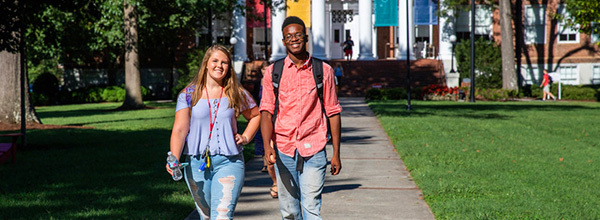Environmental Sciences and Sustainability Degree (BS)
Looking for a career that empowers you to make a positive impact on the planet? The environmental sciences and sustainability major at Lynchburg offers you a comprehensive, interdisciplinary approach to addressing pressing environmental challenges. Rooted in environmental science, sustainability, and conservation principles, the curriculum covers biology, ecology, hydrology, geology, and meteorology. Through hands-on laboratory work and field studies, you’ll develop scientific inquiry skills and gain insights into complex ecological systems.
Program highlights include high-impact experiential learning opportunities with faculty offering a variety of engaging research projects and study-away experiences. For instance, students can study local environmental issues in Central Virginia, dig up dinosaurs in Wyoming, or investigate water quality in Costa Rica. Courses include geospatial training in remote sensing and GIS, explorations of the historical development of the Earth and its lifeforms, investigations into weather and climate change, and studies on various ecosystems such as wetlands, forests, streams and creeks, and urban areas. Sustainability concepts integrated into the curriculum prepare students to meet the social and economic challenges related to environmental science.
With this program, you’ll graduate prepared to tackle environmental challenges with creativity and critical thinking and equipped to make meaningful contributions to sustainability and environmental stewardship.
As a Lynchburg environmental sciences and sustainability major, you’ll:
- Acquire knowledge in the interdisciplinary nature of environmental sciences and sustainability, fostering collaboration and innovation in addressing global environmental issues.
- Learn the principles of biology, ecology, hydrology, geology, and meteorology to comprehend the complexities of the environment.
- Explore the historical development of Earth and life, emphasizing geological and biological processes that have shaped our planet.
- Learn techniques for conducting applied research, evaluating environmental policies, and implementing sustainable solutions.
Faculty Contact
Laura Henry-Stone, PhD
Associate Professor of Environmental Sciences and Sustainability
Chair of the Environmental Sciences and Sustainability Department








